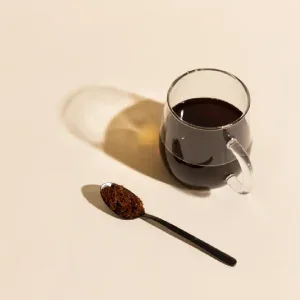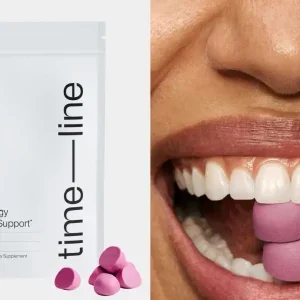
Market of Skin Whitening Products
Skin whitening is the use of substances, mixtures, or physical treatments to lighten skin colour, also known as “lightening”, “brightening”, “depigmentation”, and “bleaching”. Skin whitening treatments work by reducing the skin’s melanin content.
The global skin lightening products market includes a number of product types such as lotion and cream, foam, gel, serum and toner and scrub. According to Future Market Insights’ research report, the lotion and cream segment leads the market with a high margin. This segment is expected to reach a market value of over $8,900 million in 2027, up from about $4,800 million in 2017, growing at a CAGR of 6.4% during the forecast period of 2017-2027. This growth in revenue can be attributed to the wide availability of lotions and creams in the skin care industry. Increasing research and development in the skin lightening products industry is creating significant revenue opportunities for the skin lightening products market across the globe. The serum and toner market is expected to witness a comparatively higher growth rate than other product types with 6.8% CAGR in terms of revenue recorded during the forecast period. The market’s growth is also a result of rising annual expenditure on skin care products. The improving lifestyle of customers due to rapidly rising disposable income is increasing the purchasing power on personal grooming products. This is a key factor boosting global market revenue growth.
Useful Ingredients for Skin Whitening
Many ingredients have been shown to be effective in skin whitening and brightening These are the ingredients you should look for in a skin brightening products:
1. Vitamin A
Vitamin A keeps the skin hydrated. This prevents it from getting dry and scaly. Apart from this, it helps the skin look youthful and fixes the wrinkles efficiently. Like the ascorbic acid, vitamin A is also a good anti-oxidant that protects the skin. It helps the whitening process by keeping the skin free from harmful elements that slows down skin lightening.
2. Niacinamide (Vitamin B3)
Niacinamide possesses anti-ageing and rejuvenating effects. It also fades age spots, lightens and whitens the skin because of its ability to treat hyper pigmentation. Even heat and light does not affect it. Because of its strong lightening proficiency and its soothing nature on the skin, niacinamide is a first-rate solution to pigmentation control without the harmful side effects commonly associated with many other skin lightening agents. It is a plus point for it. Meanwhile, niacinamide increases ceramide and fatty acid levels in the skin thereby increasing hydration levels. The end result is skin that is softer, smoother, and less prone to irritation, redness, and sensitivity.
3. Vitamin C
Vitamin C has been proven to inhibit melanin production, resulting in a brighter and lighter skin. Intake of vitamin C affects the glutathione levels. The glutathione is a melanin inhibitor that runs pigment productions. Higher glutathione levels can result to fairer and whiter skin, as it is responsible for reducing dark spots. Vitamin C also boosts the production of skin collagen, thus causing stronger skin and a smoother complexion.
4. Vitamin E
Vitamin E is responsible for keeping the skin healthy and free from stress. It helps battle pimples, blemishes, scars and formation of dark spots.
5. Gamma Oryzanol
A study in Chiang Mai University, Thailand has found Oryzanol as a potential cosmetic raw- material. According to the study, oryzanol helps in skin whitening, skin hydration and is anti-aging. Oryzanol may help to maintain skin function by improvement of skin microcirculation, protection against lipid peroxidation and direct stimulation of sebaceous gland function.
6. Arbutin
There are two forms of arbutin – the alpha and the beta one. Both are tyrosinase inhibitors. Alpha arbutin is naturally derived extract from plants that are native to the northern Canadian prairie region. Alpha arbutin inhibits the activity of tyrosinase much more effectively than its beta version, by up to ten times. Structurally alpha-arbutin’s glucosidic bond offers higher stability and efficacy than beta-arbutin. The alpha form offers higher stability and efficacy leading to a skin lightening active that acts faster and more efficiently with significant skin lightening results.
7. Kojic Acid
Kojic acid works by inhibiting the conversion of tyrosinase to melanin. It interferes with the uptake of oxygen required for enzymatic browning and evens out skin tone and removes dark spots.
8. Ginkgo Biloba Extract
Ginkgo biloba has anti-oxidant effect and can remove free radicals in the body. The contained flavonoids can prevent the formation and sedimentation of pigment in the dermis and achieve the functions of whitening and preventing pigmentation. Some trace elements also have the functions of scavenging oxygen free radicals and inhibiting melanin. Moreover, it can prevent the generation of wrinkles, and can improve the blood circulation of the skin, accelerate the metabolism of the skin, and restore the elasticity and ruddiness of the skin.
9. Licorice Extract
Licorice root is perfect for those with sensitive skin. It contains two compounds – glabradin and liquirtin – that act as tyrosinase inhibitors. These disrupt melanin synthesis to lighten skin with little to no irritation. Licorice extract corrects dark spots and age spots.
10. Mulberry Extract
This product is a new item for skin lightening world but it’s getting more popular. Various species of the mulberry plant effectively inhibit melanin production. It’s also gentle and non-irritating. This is why it’s ideal to use in delicate skin types.
11. Glutathione
Glutathione is a tripeptide molecule found in mammalian bodies. It is an antioxidant that plays an important role in preventing oxidative damage to the skin. In addition to its many recognised biological functions, glutathione has also been associated with skin lightening ability. While skin whitening reduces melanin which serves as the natural protection from UV exposure, glutathione’s antioxidant property also protects the skin from UV radiation.
12. Alpha Hydroxy Acids (AHAs)
They are chemical exfoliants that are able to enter more deeply into the skin. They work better than manual exfoliants to give a gentle yet very thorough exfoliation. AHAs like lactic acid and mandelic acid suits for sensitive skin types.
If you are interested in adding the above ingredients to your skin care products, consider Kangcare Bioindustry. Kangcare has focused on the function of skin whitening and brightening for decades. The addition of above ingredients to your products helps in skin lightening, visibly diminish age spots, and reveal skin’s radiants.






